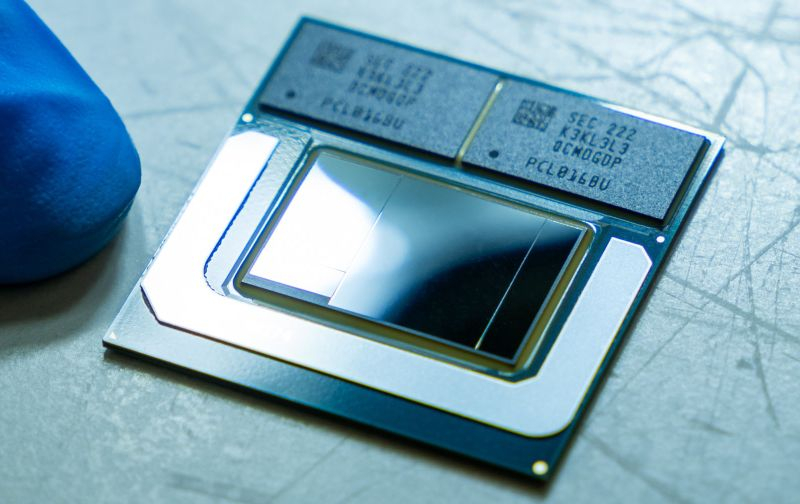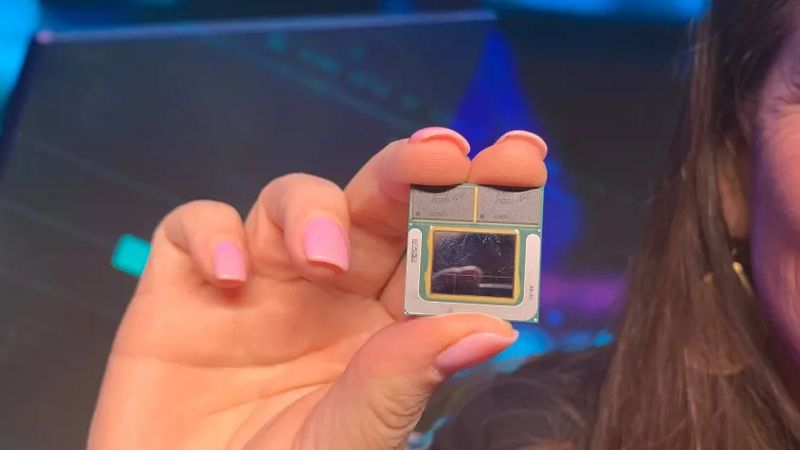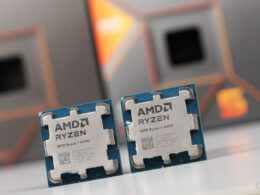Intel’s CEO, Patrick Gelsinger, set a target over two years ago to master five new tech processes within four years—part of this objective included a swift upgrade of the brand’s processor series. At CES 2024, Intel did not only express intentions of launching Arrow Lake and Lunar Lake processors in the second half of this year, but it also showcased a member of the latter family.
An engineering sample of the Lunar Lake mobile processor, with integrated operational memory consisting of two microcircuit chips was showcased at CES 2024 by Michelle Johnston Holthaus, Intel’s Executive Vice President leading the client business direction. As reported by Tom’s Hardware, she announced that the Arrow Lake (desktop systems) and Lunar Lake (mobile PC) processors will hit the market by the latter half of this year. The preparation for their mass production is now in a “deep and final stage“. Lunar Lake processors are already being supplied to laptop manufacturers, which allows for such engineering samples to be showcased.

According to Tom’s Hardware, shots of the Lunar Lake processors had inadvertently appeared in a video on the Intel site and in spite of subsequent censorship, an image of the processor—depicting four heterogeneous crystals on a single substrate with two LPDDR5X type memory chips alongside—was captured. Intel claims that Lunar Lake processors will “set a new performance bar for light and thin PCs in processing AI-typical commands“. According to Holthaus, the Arrow Lake processors will use a radically updated, low-power architecture providing a significant increase in specific performance. In comparison to Meteor Lake, AI applications will see a threefold increase in performance for both the integrated graphics core and the neural coprocessor (NPU).
Speaking of desktop Arrow Lake processors, they are Intel’s first gaming chips in the desktop segment, offering AI system acceleration at the hardware level. It is assumed that Lunar Lake processors for laptops will be produced using Intel’s most modern 18A process while the desktop Arrow Lake chips will use the equally advanced but slightly more mature 20A process. Evidently, belonging to different process generations will not prevent Intel from launching these chips within similar timeframes by year-end. As expected, new motherboards with an LGA 1851 socket will be needed for Arrow Lake processors.





